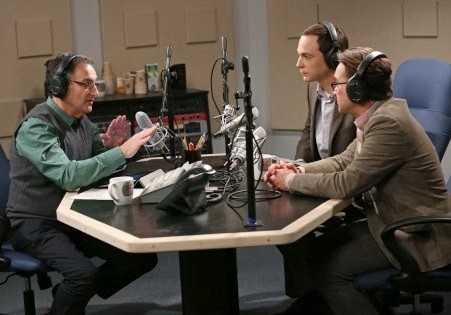Q&A: Ira Flatow on Science Friday and Portland Innovation

We've also rounded up some of the top Oregon-based videos available on SciFri’s website for your viewing pleasure.
On the Town: How did you first become interested in science?
Ira Flatow: I was one of these geeky guys you see on The Big Bang Theory. I used to blow stuff up in my basement and enter science fairs. When I was 14, I won an award for creating a machine that read punch card readers. You’ve probably never seen them, but it was the early days of computers.
I also was very active in drama. I won a national thespian award for the best actor in high school. I was as surprised as anybody! Here I was, a geeky guy with a pocket protector. I thought, nobody would look at me, and all of a sudden, girls were looking at me!
That led to radio, which lead to becoming friends with the man who started NPR. Doing radio show is a lot like theater.
Science Friday Live Show
OMSI
June 18 — Sold out
What does Science Friday mean to you?
We think of ourselves as an innovative radio show. We were the first radio show to be carried on the Internet, back in 1993. We did a show on “what is this thing called the internet.” We did a preview show on this thing no one had ever heard of. We have hundreds of videos on our website.
We’re big on education. We started a science club—like a book club, but instead of books we assign a science project. We had hundreds of submission recently to build a machine that creates art. We’re firm believers in the intersection of science and the arts.
The biggest compliment I get is when people tell me, “I never thought I’d be interested in science, but I love your show.”
What have been some of the standout moments in your career?
We had Jane Goodall, the primatologist, on several times. And I remember once we were talking with her for nearly an hour and had not taken phone calls, so I say, “Let’s go to the phones.” We get a caller on the line who says, “Dr. Goodall, do you think that there’s a primate out there that has yet to be discovered?” And she says, “Yes I do.” So I’m thinking, “time out here, are you talking about Yeti or Sasquatch?” And she says, “yes.” The world’s biggest expert on apes!
As you said, Science Friday also has quite a video presence. Do you have a favorite?
We had a video recently called “Where’s the Octopus?” and it features a scuba divers encounter with an octopus… It’s gotten over a million views! I don’t want to give it away, but you have to check it out!
You mentioned your life being like The Big Bang Theory, but you were also a guest on that show twice. What was that experience like?
That was a great experience! Their attention to detail was amazing. They started asking us to take pictures of our studio, because they wanted to replicate it exactly. Boy, was it amazing! Even the details like the thermostat on the wall, even though it never got in the shot.
The episode Flatow is talking about is only available for purchase, but you can watch a separate cameo of his voice below:
Have you ever been to Portland before?
Oh yeah, I’ve been there many times. It’s grown by leaps and bounds. I started coming out here before OMSI, and really before OPB. People say they recognize me because I’m the one with an umbrella. Portland is one of our largest listenership.
Why do you think that is?
People are smart! We have that all the way up the west coast. Maybe it’s something about the air coming in from the Pacific. I don’t know, perhaps people are just more inquisitive.
You’ve announced the themes for the show at OMSI, one of which is Green Technology. Why do you think Portland is such a nationwide leader in this field?
I think it’s because you’re a city of smart people, and you're not afraid to take chances. The pioneering spirit! Portland seems to be on the edge of city planning. It has a great light rail system, and I remember riding this and thinking, “why doesn’t every city have this?”
Then you’ll be looking into Reed College’s nuclear reactor, which is mostly run by undergrads. When you first heard about that, what was your reaction?
Who do you think develops these apps? If you’re in the military, people operating the attack submarines are teenagers: 18, 19, 21. If it’s built right, anyone can use it. If you want to find out how undergrads can run a nuclear power plant, stay tuned, we’ll find out together.
And then, of course, you’re doing a segment on beer.
You can’t do a show in Portland without doing a story on beer! We’re going to look into the chemistry of hops. Oregon is the second largest producer of hops, so we’re going to do the science of beer making.
Some of SciFri’s most interesting videos have come out of Portland, including a researcher from Lewis and Clark milking a spider, a robotic submersible exploring low oxygen in Oregon sea water, and water balloons in space!
The radio show can be heard Friday’s at 11am on OPB, or at www.sciencefriday.com.




